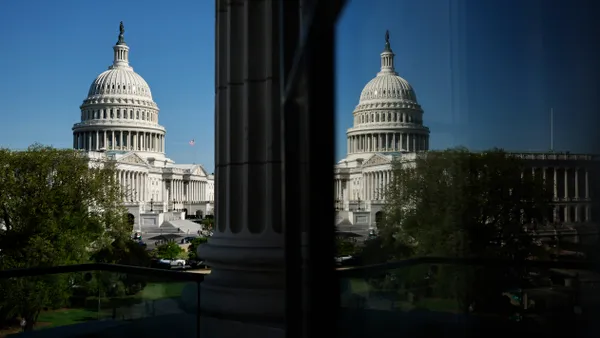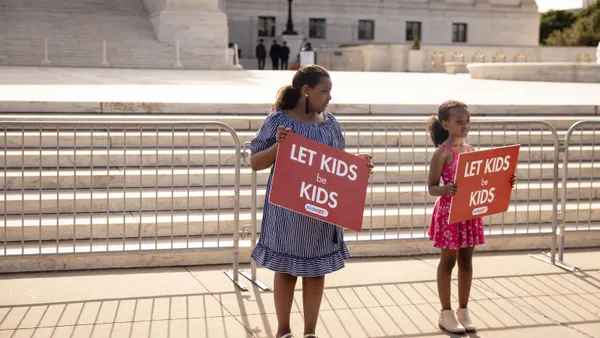Dive Brief:
- Initial efforts to move responsibility for career and technical education from the U.S. Department of Education to the U.S. Department of Labor are being met with resistance from CTE advocates and Democratic lawmakers.
- This response follows last month's signing of an interagency agreement that the agencies said would "promote innovation and process improvements in pursuit of better employment and earnings outcomes for program participants." The agreement, however, has been paused due to legal challenges.
- The planned transfer of CTE responsibilities out of the Education Department is one of several actions the Trump administration has taken to follow through on promises to dismantle the agency.
Dive Insight:
The CTE interagency agreement "lays out a confusing and fragmented division of roles and responsibilities" between DOL's Employment and Training Administration and the Education Department's Office of Career, Technical, and Adult Education, said Advance CTE, an organization of state CTE directors and related professionals, in a June 13 statement.
Advance CTE and the Association for Career and Technical Education, a CTE advocacy organization, said in a June 11 joint statement that the agreement would have "far-reaching negative impacts on CTE programs and learners across the country." That's because the agreement "directly circumvents existing statutory requirements" under the Carl D. Perkins Career and Technical Education Act, the groups said.
"The Perkins Act and the CTE programs it supports are not merely job training programs; these programs are comprehensive educational and career preparation programs that prepare secondary and postsecondary learners for lifelong success by connecting academic and technical learning with the real world skills that learners need to thrive," Advance CTE and ACTE said.
The interagency agreement is among the efforts paused due to ongoing litigation challenging the administration’s moves to reduce the Education Department's workforce and transfer some of its responsibilities to other federal agencies. CTE advocates and other stakeholders say they only learned about the May 21 CTE interagency agreement by reading a June 10 status update issued by the Education Department as part of required legal filings.
The interagency agreement was signed by Lori Bearden, acting assistant secretary of DOL's Employment and Training Administration, and Nicholas Moore, acting assistant secretary of the Education Department's Office of Career, Technical, and Adult Education.
Democratic lawmakers described any such CTE transfer as "illegal."
In a June 18 letter from Democratic leaders of congressional appropriations and education committees to U.S. Education Secretary Linda McMahon, the lawmakers said Congress authorized the Education Department to carry out career and technical education and adult education programming and funding. If the agencies have ideas for reforms, the lawmakers said, those would need to be presented to Congress for approval.
Additionally, they said, the interagency agreement would likely lead to K-12 school systems and colleges having to work with two federal agencies, which would lead "to delays in agency decision-making and grant administration," as well as increased inefficiencies.
"Respectfully, federal agencies are not interchangeable entities that simply hand out money to states and localities. Instead, each agency provides its own specific expertise in the administration of federal programs, in this case education programs," the lawmakers wrote.
The Trump administration has said it is proposing reforms across federal agencies in an effort to reduce waste and duplicative programs and to increase efficiencies. The administration’s fiscal year 2026 budget proposal seeks $1.5 billion for CTE state grants and national programs, a slight cut of $2.3 million compared to the FY 2024 appropriation.
The new federal fiscal year begins Oct. 1.







 Dive Awards
Dive Awards







